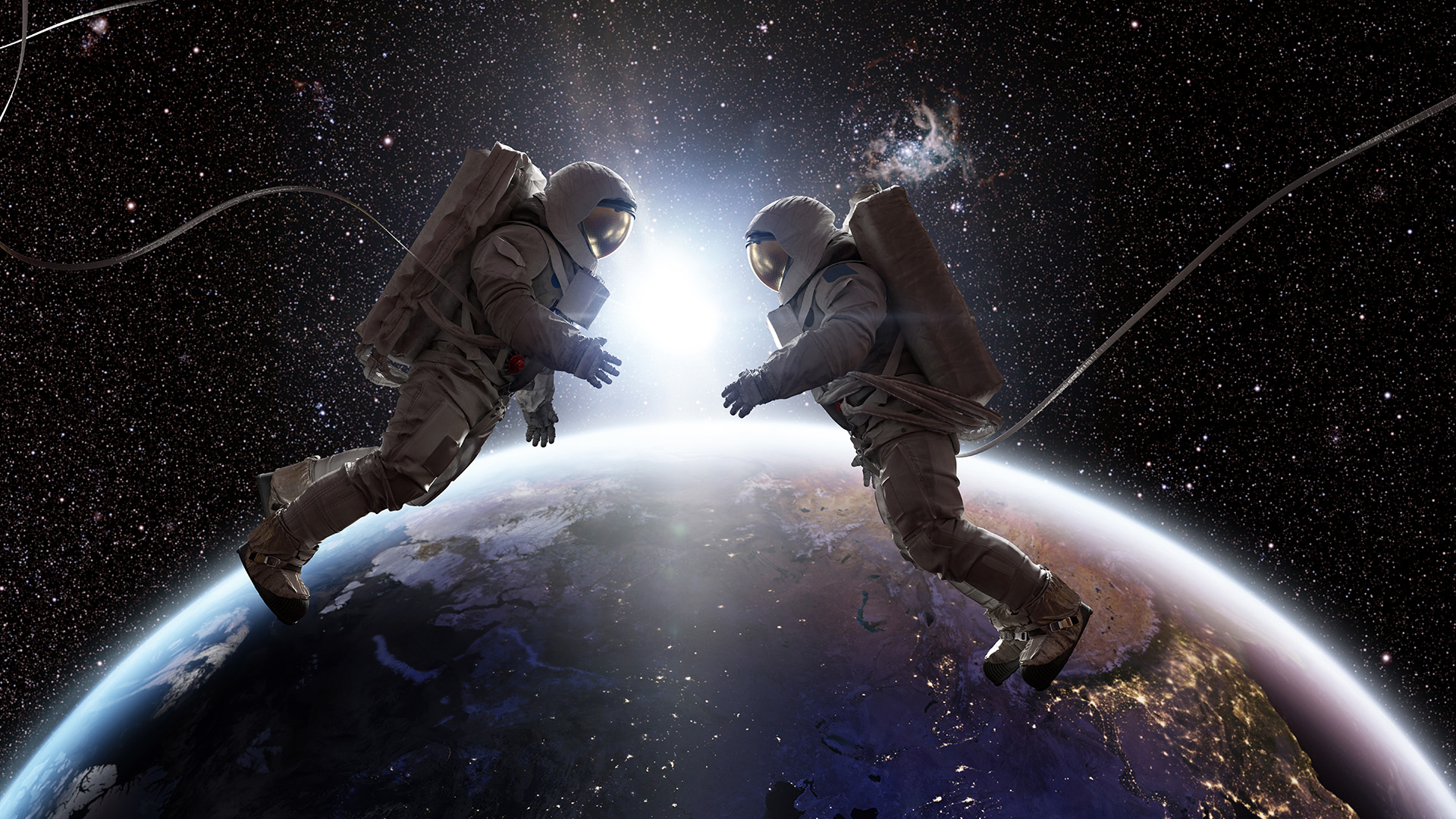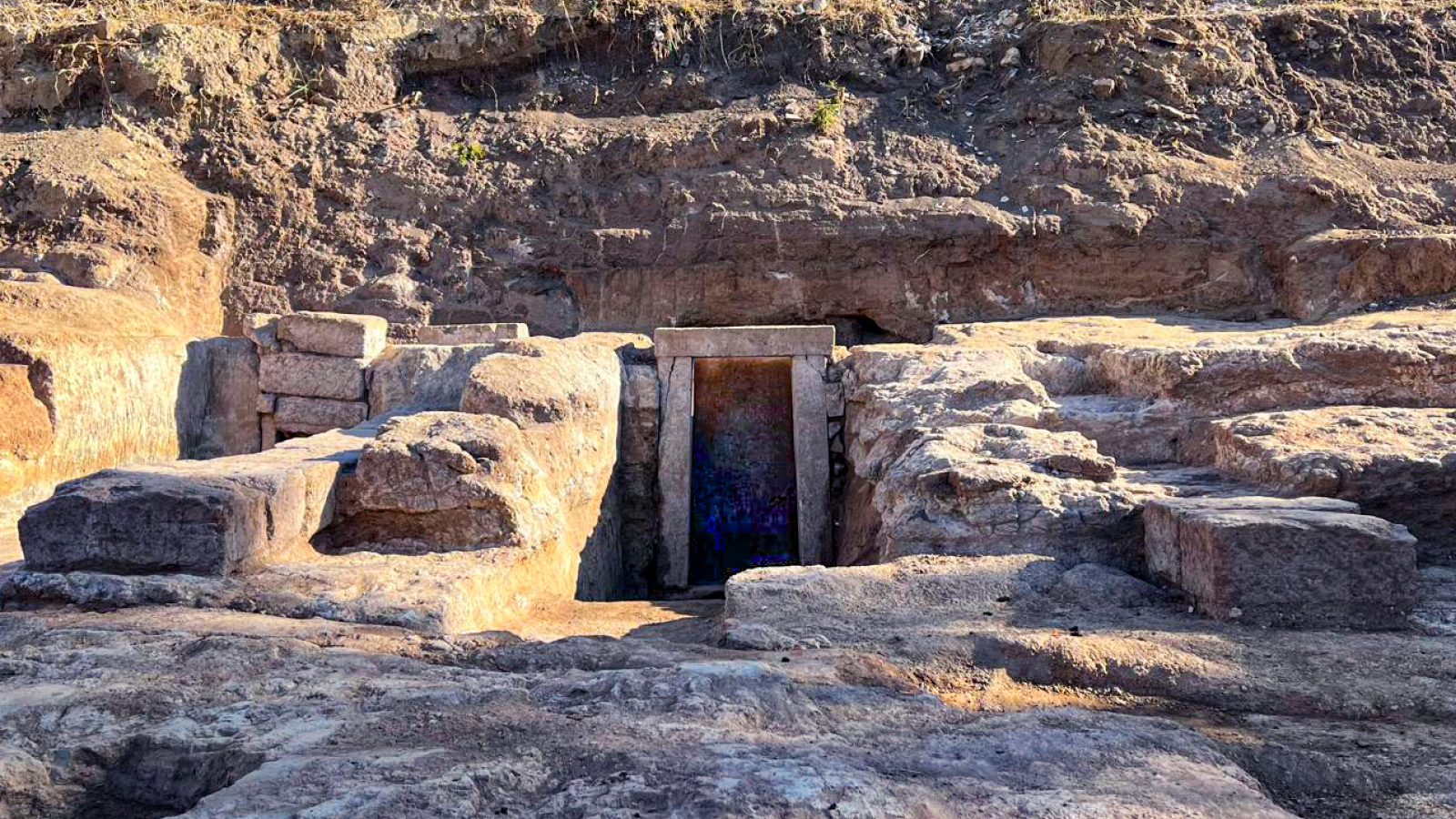What does space smell like?
Outer space has a particular stench. But why?

When astronauts return from spacewalks, they often describe unexpected scents similar to burnt steak and spent gunpowder. But why does outer space smell like torched things, and where does this odor come from?
To be clear, space is a near-perfect vacuum. While in space, astronauts protect themselves in spacecraft, spacesuits and space stations, "since direct exposure would, of course, kill them," Ofek Birnholtz, an astrophysicist at Bar-Ilan University in Israel, told Live Science. As such, no one has directly smelled space "and lived to tell the tale," he noted.
Nevertheless, after coming back from outings in the final frontier, astronauts regularly catch a whiff of a unique odor upon removing their helmets, and their compatriots also notice this scent wafting in when the airlock doors are opened.
"Space definitely has a smell that's different than anything else," NASA astronaut Dominic "Tony" Antonelli said after a 2009 spacewalk.
Overall, astronauts often compare the smell of space to "hot metal, burnt meat, burnt cakes, spent gunpowder and welding of metal," according to Steve Pearce, a biochemist and CEO of Omega Ingredients, who combed through astronaut interviews to help him craft a NASA-commissioned scent.
Meanwhile, former NASA astronaut Thomas Jones compared the odor to ozone. Another NASA astronaut, Don Pettit, described the smell of space at length in a NASA blog post, saying, "The best description I can come up with is metallic; a rather pleasant sweet metallic sensation. It reminded me of my college summers where I labored for many hours with an arc welding torch repairing heavy equipment for a small logging outfit. It reminded me of pleasant sweet smelling welding fumes. That is the smell of space."
Related: What would happen to the human body in the vacuum of space?
Get the world’s most fascinating discoveries delivered straight to your inbox.
Where might this scent come from? Although space is mostly empty, it is not a perfect vacuum. "We're not actually talking about a volume that has no particles," Miranda Nelson, a spacewalk flight controller in Mission Control at NASA's Johnson Space Center in Houston, told Live Science.
There are a number of potential explanations for this smell. One has to do with oxygen floating around the International Space Station. Ultraviolet rays from the sun may split oxygen molecules (O2), which are made of two oxygen atoms, into single oxygen atoms. This atomic oxygen may cling to spacesuits, airlock walls and other items exposed to space, triggering chemical reactions that may explain the odor, such as ozone formation, Nelson said.
"The other much more fun theory is that it's the smell relating to stellar explosions — dying stars," Nelson said. These outbursts generate smelly molecules known as polycyclic aromatic hydrocarbons, which are found in coal, food, oil and other materials, she noted. However, Nelson stressed that both of these ideas lack data from official studies.
To help make astronaut training more realistic, NASA commissioned Pearce in 2008 to create a scent that mimicked the odor that astronauts described. The aim was to eliminate surprises astronauts might experience in orbit, he said.
Pearce did not go to space himself or smell any spacesuits when designing the scent. Instead, "I recreated the astronauts' descriptions, using my knowledge and experience of available, safe aroma materials that, when combined, could elicit a similar perception," he said.
From this research, Pearce later helped design a perfume known as Eau de Space, which has been a bestseller since it launched in 2020, he said. However, "to be fair, there are really very few people who have truly experienced the smell of space and could comment on its realism," Pearce said.

 Live Science Plus
Live Science Plus






